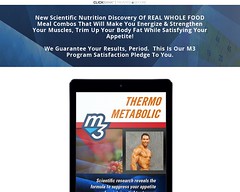
- Click Here To Know More About:
- Automated Vitamin Sample Preparation Australia
Submitted by: Susanne Myers
One thing that most of us have in common is the desire to feed our kids, and ourselves, nutritious food. But, when faced with the array of choices, it gets confusing. What’s good, what’s bad… it’s not easy to distinguish the difference sometimes.
Even though quinoa has been around for thousands of years, it hasn’t hit America’s grocery shelves until recently. Over the last few years, quinoa has exploded in cookbooks, cooking shows, and the internet. This ‘super-food’ is becoming quite popular in many circles; including vegetarian, vegan, weight loss, gluten-free, and fitness diets.
Quinoa is a seed, a relative of beets, spinach, and Swiss chard. Because it is not a grass or grain, quinoa is considered the perfect food for those with grain, like wheat, sensitivities. The awareness of gluten-free diets may have likely brought quinoa into the limelight. However, quinoa is proving to fit into many diets for a wide range of reasons. Let’s take a look at a few benefits that quinoa offers us all:
Protein:
Not all foods considered high in protein contain all the essential amino acids in proper proportions for maximum effectiveness in the body, but quinoa does. Quinoa is a complete protein, meaning it contains all essential amino acids in perfect proportions. In fact, quinoa has the same protein quality as milk. For a vegan, or a vegetarian who doesn’t drink milk, quinoa is the perfect replacement food. Mix in some black beans in a simple soup or casserole, and you have the ultimate protein-rich super-food.
Minerals:
The most concentrated amounts of minerals in quinoa are manganese, magnesium, and phosphorus. With just one serving of quinoa, you will have more than half the RDA of manganese alone, neutralizing those damaging free radicals that are constantly attacking our organs. Along with manganese, quinoa contains high concentrates of magnesium and phosphorous which are both essential minerals aiding in bone health, heart and cardiovascular health, as well as nerve and brain health. Quinoa completes the mineral wheel with ample supplies of calcium, iron, potassium, zinc, copper, and selenium, all vital to our health and well-being.
Vitamins:
The highest concentrated vitamin in quinoa is folate. Folate is a B vitamin that is essential for healthy red blood cell development as well as healthy tissue and organ development, most notably during a child’s early years. Folate is also believed to fight the destructive cell developments of cancer. Other vitamins that can be found in a good supply in quinoa are vitamin E, thiamin, riboflavin, niacin, and vitamin B6, all essential in the growth, repair, and functioning of vital organs, blood, and tissue.
Dietary Fiber:
You probably hear a lot about dietary fiber in advertisements aimed at curing constipation. But, the fact is, dietary fiber is crucial for all of our body functions. With a whopping 21% RDA in one serving of quinoa, eating a regular diet including this super-food makes sense. Why? Not only does fiber aid the digestive system, it also is known to lower blood cholesterol levels. Studies also show that increasing fiber in your diet will help reduce blood pressure which promotes heart health. A good diet rich in fiber helps control blood sugar levels by slowing the absorption of sugars. Along with these benefits, high-fiber diets also may help with weight loss, due to the fact that foods that are high in fiber and low in calories, like quinoa, fill you up without added calories.
It appears that if you had to choose one food to survive on, quinoa may be your best bet. This super-food contains just about everything a body needs – fiber, vitamins, minerals, healthy fat, carbohydrates, and protein. Add to that the fact that quinoa is low in calories, has zero cholesterol, zero sugars, and is low in sodium, and you’ve got the perfect food to add to your family’s healthy diet.
How do you get more quinoa into your diet? You can do much more than substituting quinoa in dishes that call for rice or pasta. Rather, start by remembering that quinoa is a protein. With that in mind, think about quinoa like you do black beans, another vegetarian source of protein. Replace meat meals with quinoa meals on a regular basis to enjoy all the benefits of this super food. Go ahead and clear a spot in your pantry, because once you cook with quinoa, you’ll be stocking up.
About the Author: Susanne Myers wants to help you learn what it takes to eat right and stay fit, even with a hectic lifestyle and a tight budget. Find healthy recipes and tips for
cooking with quinoa
as well as other nutritious foods. And, visit us often at www.HillbillyHousewife.com for even more ideas and tips for living well.
Source:
isnare.com
Permanent Link:
isnare.com/?aid=715750&ca=Wellness%2C+Fitness+and+Diet}